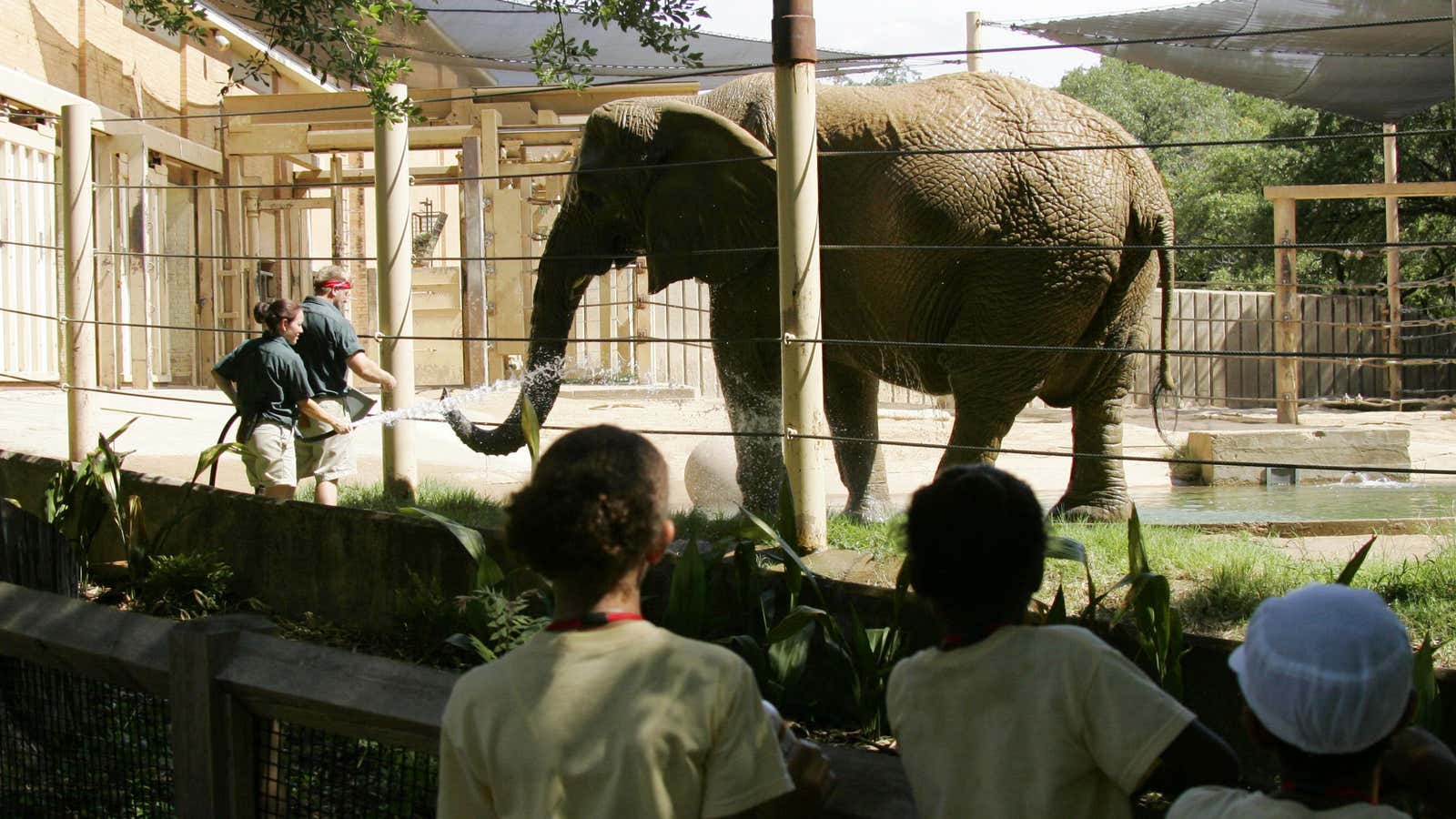The Dallas Zoo wants to transfer six elephants from Swaziland to its man-made savannah near the city’s downtown, where it says they will have a better chance of surviving than in their native Africa.
The Texas zoo, along with zoos in Omaha, Nebraska, and Wichita, Kansas, have filed paperwork (pdf) with the US Fish and Wildlife Service to import a combined 18 elephants, representing close to half of the 40 elephants in two managed areas of Swaziland, the Mkhaya Game Reserve and Hlane National Park.
The zoos say the Swaziland herd has outgrown its current habitat, which is managed by private nonprofit Big Game Parks. The elephants are feeding through forests and crowding endangered rhinos, they add. Rampant poaching makes it unsafe to move the animals elsewhere in Africa, they argue, and if the zoos don’t take them, park managers will cull them.
But the idea is generating an uproar among conservation activists and wildlife managers who say zoos are no place for the highly intelligent and social pachyderms. “African elephants belong in Africa,” one such group declares.
It’s not as simple as that, though. Africa is far from a wild, undisturbed place where elephants can freely roam. The animals often clash with human development, and are targeted by poachers after their ivory. Even in protected places like Kruger National Park, in South Africa, the animals are fenced in and their water supplies managed, says Wayne Getz, a wildlife ecology professor at University of California, Berkeley.
“There’s nowhere that’s really that wild anymore,” he tells Quartz. “Everywhere fences are put up.”
The Swaziland herd is already the result of human intervention. After the local population of elephants was wiped out in the 1940s, the animals were reintroduced to the country in the 1980s. Those kind of transfers are not without disruptions to the natural order of elephant life. For example, starting a new herd without a mature bull can cause teenage males to act up, “like juvenile delinquents in the absence of an adult,” says Getz.
Elephants are much better off roaming through thousands of acres, he says, but selling them to zoos could have positive effects if the funds are used to preserve the animals left behind, he adds. The three American zoos have agreed to pay Big Game Parks $450,000, which they say will go toward implementing the group’s conservation plan.
Activists arguing for a different fate for the 18 elephants propose moving the animals to another protected area within Africa, or letting them stay in Swaziland, but in a larger space, separate from the rhinos.
Big Game Parks could not be reached for comment, and the Dallas Zoo did not respond to interview requests. The zoo told the Dallas Observer that animal exhibits could inspire “future generations of Americans” to achieve what has so far eluded conservationists: putting an end to poaching.
More than 100,000 African elephants were killed for their ivory between 2010 and 2012, leading to a population decline of 2% to 3% a year, according to a study led by Colorado State University.




